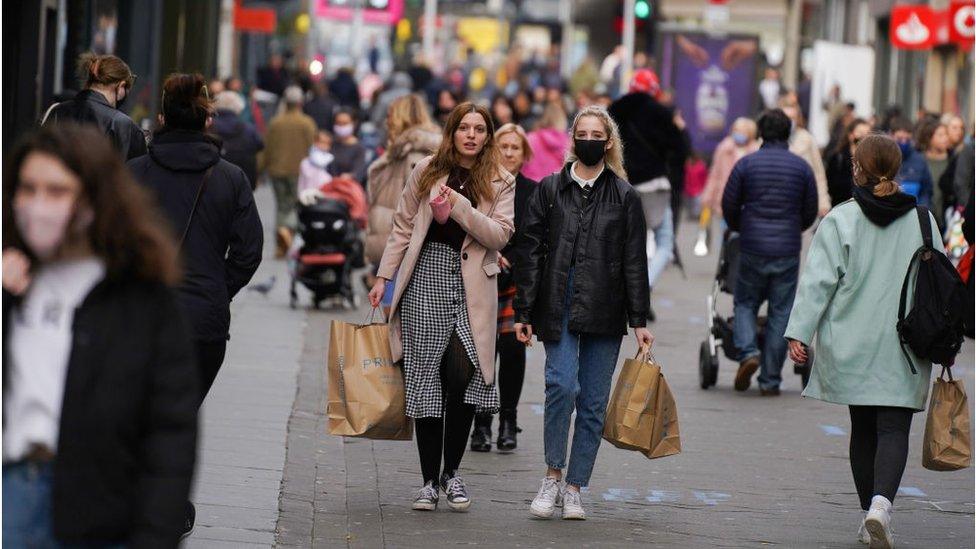Government support 'essential' for UK economy, says IMF
- Published

The International Monetary Fund (IMF) has said continuing government support is "essential" for the struggling UK economy to recover.
The UK can afford it, and support is needed to see it through the coronavirus pandemic and the Brexit transition, the IMF said.
Coronavirus infections are climbing rapidly again in the UK and elsewhere.
The IMF said the coronavirus recession is likely to be more severe than it had predicted just a few weeks ago.
It said the second wave of coronavirus, Brexit uncertainty, rising unemployment and stress on firms' balance sheets would make for a more "muted" recovery than it forecast earlier this month.
Coronavirus recession
The IMF predicted that the UK economy would shrink by 10.4% in 2020, and partially recover in 2021, with growth at 5.7%. This was a downward revision from just a few weeks ago when it upgraded its forecast.
Britain can afford to ramp up its already massive spending push to counter the effects of the coronavirus pandemic, the IMF's managing director Kristalina Georgieva said.
Invigorating growth as the pandemic subsides will take more spending, the IMF said.
The UK government should increase public investment and bolster welfare support for people who lose their jobs because of the crisis, she said.
The government has been supporting the UK through a number of initiatives, including the jobs furlough scheme that ends on Friday, to and be replaced by a different scheme.
"My main message today is that continued policy support is essential to address the pandemic and to sustain and invigorate a recovery," Ms Georgieva said in an online presentation alongside Chancellor Rishi Sunak.
"We welcome that the authorities have committed to deliver it as long as necessary to boost expectations and confidence. The policy space exists to do this," she said.
Mr Sunak welcomed the IMF report, which he said endorsed his economic policies and his warnings that there would need to be action in future to reduce borrowing.
"Let me be clear on what the Fund is saying today. It's right to support the economy in the short term, but over time - and in line with other major economies - we must get our public finances back on a sustainable path," he said.
The IMF said the government's "aggressive" policy response to the pandemic was one of the "best examples of coordinated action globally", and had helped to hold down unemployment and the number of firms going bust.
Nevertheless, economic output has "dropped dramatically", it said, and public and private debt levels are set to rise significantly.
The IMF has estimated that Britain is on course to rack up a budget deficit of 16.5% of gross domestic product this year, dwarfing the damage wrought on the country's public finances by the global financial crisis.
Ms Georgieva said fixing the public finances could not be ignored but should only happen "once the private sector has durably picked up steam".
IMF staff said increases in the rate and scope of major taxes would be almost inevitable.
The Treasury declined to comment.
- Published27 October 2020
- Published13 October 2020